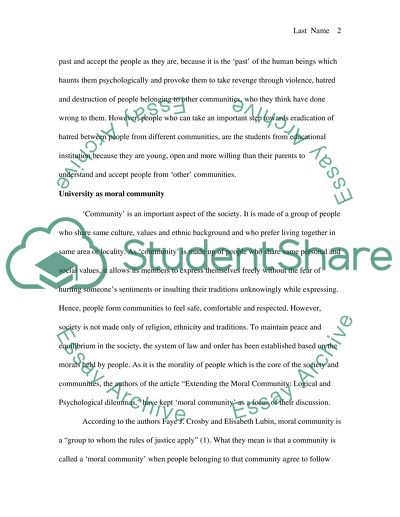Cite this document
(“University as Moral Community Essay Example | Topics and Well Written Essays - 2500 words”, n.d.)
Retrieved from https://studentshare.org/psychology/1426422-in-what-ways-is-a-university-a-moral-community
Retrieved from https://studentshare.org/psychology/1426422-in-what-ways-is-a-university-a-moral-community
(University As Moral Community Essay Example | Topics and Well Written Essays - 2500 Words)
https://studentshare.org/psychology/1426422-in-what-ways-is-a-university-a-moral-community.
https://studentshare.org/psychology/1426422-in-what-ways-is-a-university-a-moral-community.
“University As Moral Community Essay Example | Topics and Well Written Essays - 2500 Words”, n.d. https://studentshare.org/psychology/1426422-in-what-ways-is-a-university-a-moral-community.


